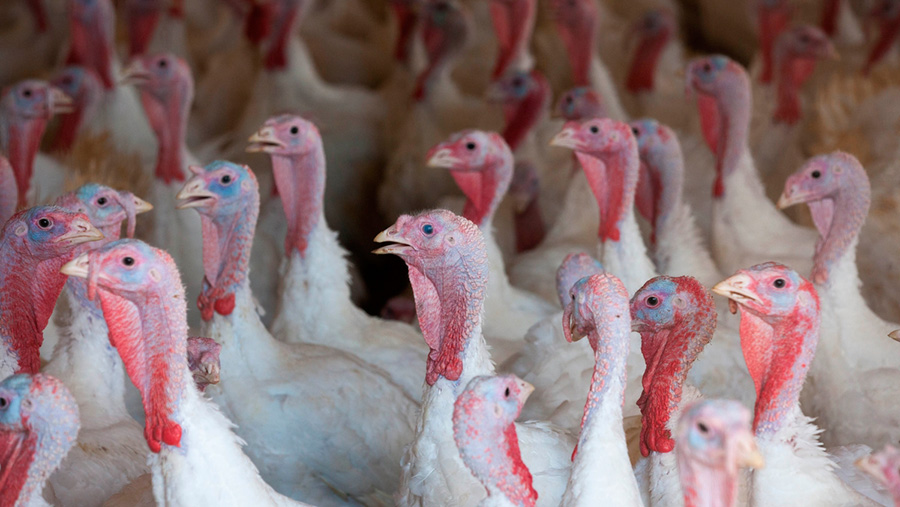Coccidiosis prevalent in turkey flocks this autumn
 © Tim Scrivener
© Tim Scrivener Vets are reporting higher levels of coccidiosis in turkey flocks this autumn.
Poultry vet Steve Lister, of Crowshall Veterinary Services, said it had generally been a good year when it came to problems with birds. Levels of respiratory disease were low because there had not been a lot of bacteria about, he explained.
See also Turkey farmers suggest Christmas farmgate price increase
But anecdotal reports suggested some producers were experiencing more intestinal problems than they expected with their birds.
Mr Lister said this was not necessarily an issue to be overly concerned about – but producers should remain vigilant and take any necessary action as soon as possible.
“We have actually seen more coccidiosis this autumn,” Mr Lister told a technical meeting of the Anglian Turkey Association. “It seems to have popped up a few more times this year.”
Mr Lister said coccidiosis was not that common in turkeys because feed usually contained a coccidiostat to keep down parasites. But producers were reporting a bit more of it, and it was damaging to the gut.
“It doesn’t tend to wipe the flock out, but birds that are sick with coccidiosis do tend to be quite affected. It doesn’t mean there is resistance to the coccidiostats we are using but we have been seeing coccidiosis quite early on in birds moving from a starter to a grower ration.”
Producers with a coccidiosis problem would notice a dip in feed intake between crumb and pellet, suggested Mr Lister.
Where it was present, vets may need to follow up with an antibiotic, such as amoxicillin, to prevent necrotic enteritis, or gut decay, afterwards.
“The gut dies very quickly because the damage to the lining allows bacteria from the bottom end of the bird to come up and produce lots of nasty toxins, which makes things worse. That is where you can get a complete slopping of the gut.”
Mr Lister said he had seen coccidiosis on three or four different flocks – all of which were on the coccidiostat Avatec.
But this was likely to be just a coincidence because he had not seen anything to suggest there was an issue with the coccidiosistat.
Producers should also be aware of any gizzard impactions, said Mr Lister. “Turkeys will often eat things that aren’t good for them.
If you are allowing them access to long grass, they can become impacted, with a mass of grass protruding into the duodenum.”
